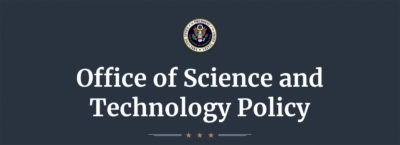Stay Up to Date
Submit your email address to receive the latest industry and Aerospace America news.
Outreach effort to universities involves current and former NASA officials
Envoys from the White House Office of Science and Technology Policy will fan out to university campuses in the coming months “to converse with researchers and students on matters of research security,” according to a letter from Director Kelvin Droegemeier addressed to the “United States Research Community” and published on the White House website.
This outreach initiative is linked to the Joint Committee on the Research Environment, a panel of nine government officials established by the White House in May to address a host of research-related topics including what the administration sees as vulnerability to foreign exploitation.
Known as JCORE for short, the committee includes NASA Administrator Jim Bridenstine and former NASA chief scientist France A. Córdova, now director of the National Science Foundation.
JCORE is “is assembling an array of examples in which our [U.S.] research enterprise was exploited or compromised” by foreign governments, Droegemeier writes. The letter does not say whether the exploited research enterprises will be listed by name.
Specifically, the letter warns about exploitation through “foreign government-sponsored talent recruitment programs,” in which researchers working in the U.S. also receive funding from non-U.S. governments.
Droegemeier, a meteorologist and prior vice president for research at the University of Oklahoma, writes that participation of U.S.-based researchers in some of these foreign talent programs “may still be acceptable,” but he cautions that some of the programs have exhibited “breaches of research ethics” and that participants have sometimes conducted research for foreign governments and companies while on U.S. government time.
JCORE will outline ways institutions can watch for security risks, and it will draft new funding disclosure requirements for researchers. Other kinds of security breaches the White House is targeting include “affiliations and appointments, and conflicting financial interests,” according to Droegemeier’s letter.
How is the U.S. research community reacting? Some universities welcome the prospect of a consistent set of rules that would “harmonize disclosure” of financial information, says Tobin “Toby” Smith, vice president of policy for the Association of American Universities, whose 62 member universities are heavily involved in research.
Smith says that OSTP’s concerns are likely valid, although he does not know the extent of any such exploitation. Some researchers “may willfully be not reporting” their funding sources, and some might even be running “shadow labs” in other countries, “not necessarily disclosing it even to their home institutions.”
Separately, the Department of Defense, as directed by Congress, enacted new rules earlier this year for Pentagon-funded research and defined which funding sources researchers must disclose, including through foreign talent programs, according to a March 20 memo by Under Secretary of Defense for Research and Engineering Michael Griffin.
About Amanda Miller
Amanda is a freelance reporter and editor based near Denver with 20 years of experience at weekly and daily publications.
Related Posts
Stay Up to Date
Submit your email address to receive the latest industry and Aerospace America news.





